#julie x richard
Photo
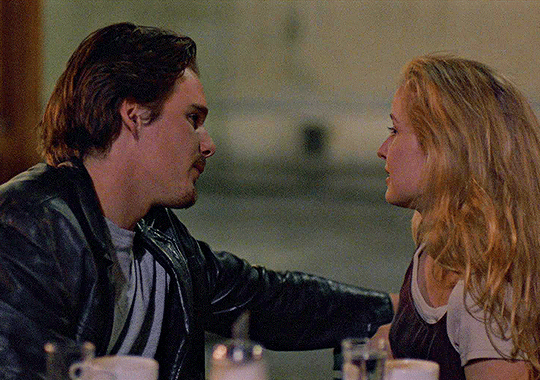
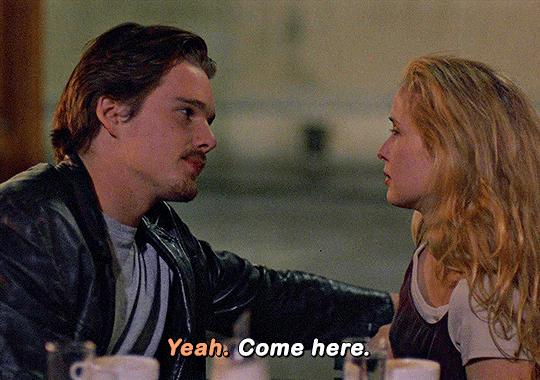
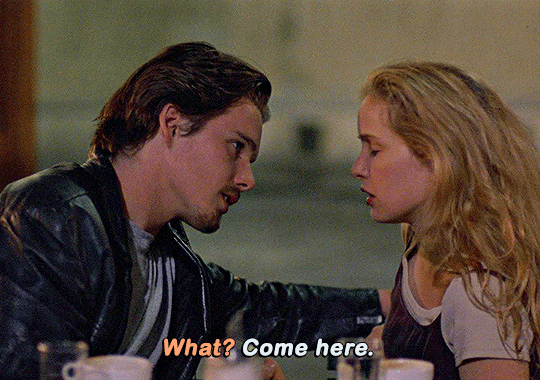
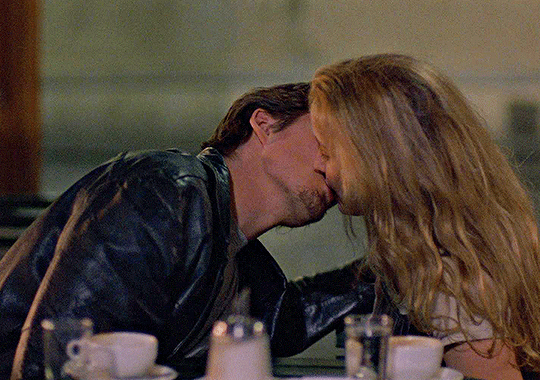
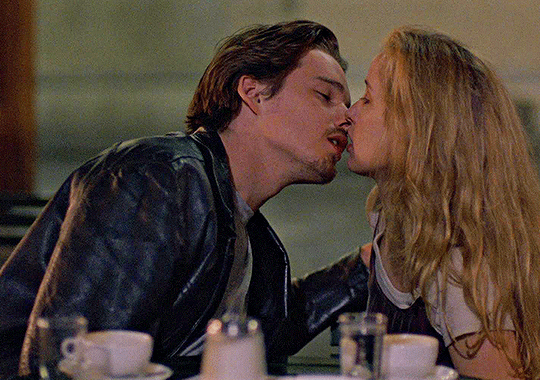
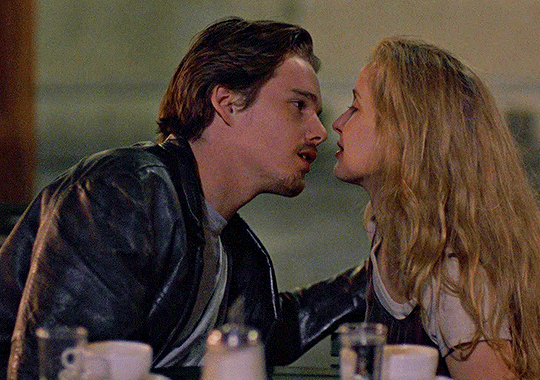
BEFORE SUNRISE (1995)
dir. Richard Linklater
#filmedit#romancegifs#before sunrise#richard linklater#julie delpy#ethan hawke#céline x jesse#doyouevenfilm#moviegifs#dailyflicks#useroptional#userbbelcher#movieedit#myedit#💕💕💕
3K notes
·
View notes
Text

The Power Pack and Storm by Todd Nauck and Rachelle Rosenberg.
#marvel#power pack#x-men#Storm#ororo munroe#Jack power#zero g#matter master#Julie power#Alex power#Katie power#energizer#light speed#rachelle rosenberg#todd nauck#franklin richards#the brood
37 notes
·
View notes
Text
Napoleon as a rallying cry during the revolutions in France during the 19th century
July Revolution (French Revolution of 1830):

French Revolution of 1848:
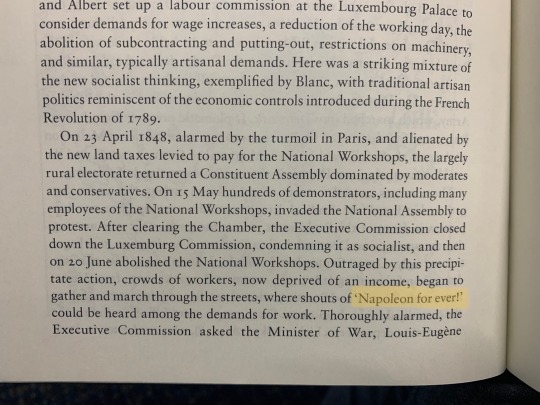
Source: The Pursuit of Power: Europe 1815-1914, Richard J. Evans
#The Pursuit of Power#Richard J. Evans#Evans#Napoleon#napoleon bonaparte#Talleyrand#Charles X#Thiers#Marmont#Lafitte#Jacques Lafitte#Louis-Philippe#Lafayette#Revolution#french revolution#July Revolution#1848 revolutions#Revolution of 1848#1848#napoleonic era#Blanc#first french empire#napoleonic#history#french history#my pics#book#book quotes#revolution of 1830#France
23 notes
·
View notes
Text
An Apologia to BEFORE MIDNIGHT (2013)
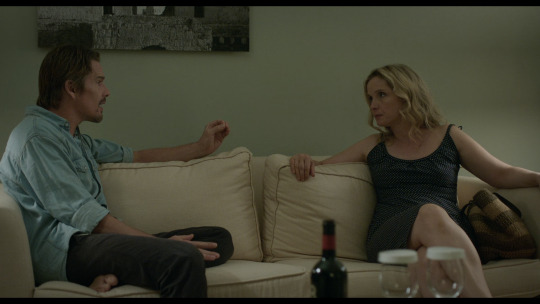
I've just finished rewatching for the umpteenth time the spectacular work of art that is The Before Trilogy, and since I've discovered it I have always refrained myself from writing about it because of my inability to put into words the beauty and the depth behind the meaning that these three films have progressively acquired for me.
But this time I'm going to try to say something for the sake of those who believe the screenplay to have failed in portraying Jesse and Celine’s personalities and gone out of character in this third installment – which I feel particularly compelled to defend as it's, in my opinion, not only the best entry in the trilogy, but also one of the best movies ever made, significantly thanks to the way the couple's characterization brilliantly builds up on two-decades of long cinematic work and collaborative effort and climaxes with an egregious payoff. I hope that reading about how I interpret the way Before Midnight blends in perfect harmony with Before Sunrise and Before Sunset may at least partially redeem the film for those of you who were left dissatisfied or disappointed by the decrease in naive idealism and dream-like romance.
WARNING: Detailed spoilers of all three movies under the cut.
Even though I think it’s quite easy at first to find a bit jarring the evident, apparently sudden change in Jesse and Celine's dynamic – reacting with a kind of discomfort that is clearly something the screenplay wants to induce in the audience, which is not accostumed to revisit Jesse and Celine after they have spent almost a decade together and studying each other inside out – I also think it quickly becomes clear that what Before Midnight aims to do, with regards to characterization, is to take all the most irritating and unpleasant shades Jesse and Celine had always had within themselves, whose seeds were planted and indeed palpable, albeit romanticized, in Sunrise (despite both characters trying their best to keep them hidden beneath a deeply self-conscious need to foster the spark of their newfound connection and perform the attraction/seduction role-play) and aptly watered in Sunset, and throw them full-force to the viewers’ face, challenging their ability to still feel invested in the couple by appealing to the idea that even our favorite, most beloved people in the world can intimately be ugly, paradoxical, occasionally toxic as well as endearing at the same time, because that’s a hard truth about human nature and “this is real life, it’s not perfect but it’s real”.
To demonstrate that their characterization is actually coherent with everything that came before, I challenge you to think about Jesse and Celine in these terms: Sunrise makes it clear that they are both smart college graduates, fundamentally contemplative and opinionated intellectuals (or at least, proto-intellectuals) who share a hardwired desire to shape the world around them with their thoughts and ideas and an idealist outlook on the universe, time and the human condition. The trilogy explores, among other things, the way they react to the realization that the universe, time and the human condition can’t conform to their idealistic vision, but that they themselves have to find out how to conform to the universe, time and the human condition. What deeply sets Jesse and Celine apart, then, is the direction they decide to channel the resentment and deep-seated unfulfilling dread steaming from this bitter realization towards.
Jesse directs it towards himself, which turns him into a depressed writer who is never going to be satisfied no matter what happens into his life. In Sunset, the movie starts with Jesse talking about how everything is autobiographical and proceeding to announce the concept of his next book, which happens to feature a totally depressed guy whose dream is riding motorcycles trough South America, being a lover and adventurer who finds happiness “in the doing, not getting what he wants”, but who is instead “sitting at a marble table, eating lobsters with a beautiful wife and everything that he needs”. Later on, at the Parisian café, Jesse rants about being unable to be “in the moment”, about not enjoying any minute of his best-selling book tour and about how Buddhists may have a point when they talk about freeing themselves from desire – which Celine aptly identifies as a symptom of depression. And while Sunset seems to want to make you think that Jesse’s depression may stem from his unsatisfying family life, even hinting at the idea that Celine may be the cure to his condition, Midnight slaps you hard in the face and awakens you to the reality that even though Jesse did get what he wanted, he’s still more depressed than ever – in fact, it clarifies that Jesse’s depression is existential. Celine herself outwardly calls him out on it after he relates an anecdote about the twins fighting over a trampoline, when he refers to pettiness, jealousy and selfishness as “the natural human state”. He seems to quickly scrape her comment off in the moment as one of her exaggerations, but later on admits to his accuracy when he tells her, in the last scene of the movie, that he has struggled all his life connecting and being present with those he loves the most. Which brings us back to Sunrise and his confession about being an unwanted, neglected child who eventually kind of adjusted and took pride in viewing the world as “this place where I wasn’t meant to be”, or to the acknowledgement that he is sick of experiencing his life from his own point of view (“see, I’ve heard all these stories, so of course I’m sick of myself”). I truly believe, during the car ride at the beginning of Midnight, that Jesse is thinking about the same words of his father’s that he was confessing to Celine in Sunrise, when he says, talking about his own absence from his son’s life, “This is the one thing I promised myself I was never going to do, and now I look up and I’m doing it”. I really think it often goes underappreciated how tragic Jesse’s character actually is. The point of his character is that his own childhood abandonment trauma colored his conception and experience of the world, and about how that adds up to his intellectual inability to find peace and contentment in the moment, and about how both aspects flow into apparently inescapable patterns of self-repeated misery. He’s not just depressed: he’s doomed to depression. And the truth the movie points to is that, ultimately, Celine can’t change this foundational aspect of Jesse’s nature. She has, to an extent, to learn to live with it and accept it.
On the other hand, the same intellectual resentment and unfulfilling dread that Jesse directs within himself, Celine aggressively projects to the outside world. If Jesse is fundamentally depressed, Celine is fundamentally angry. Sunrise does a masterful job at carefully planting the seeds that testify how Celine is, at her core, defined by her anger, while simultaneously never allowing for that anger to truly come to the surface and take the audience out of the otherworldly romantic idealism of their night in Vienna. She talks about the unfairness of being unable to complain to nice and supporting parents; she says that everything pisses her off and proceeds to list several examples; she thinks it’s a healthy process to rebel against everything in her life right after admitting that she has been raised happily, loved and wealthy and doesn’t even know “who or what the enemy is”; quite revealingly, she tells an anecdote about a professional shrink experiencing her anger to the effect that, after a single session with her, she had to call the police in fear that Celine might actually carry out the story about killing her ex-boyfriend that she had written as a consequence of her morbid obsession with him. And maybe most importantly, the palm reader makes explicit to the audience what ends up being the central theme of Celine’s character in the trilogy: “you need to resign yourself to the awkwardness of life; only if you find peace within yourself, you’ll find true connection with others”. Sunset dares to shed quite a bit of the romantic aura that Celine was wrapped in during Sunrise where, despite all of this, she still managed to resemble a Botticelli angel, and lets her anger manifest more vividly in several moments. “The world is a mess right now!” she shouts right before a bitter political rant. She’s also deeply resentful towards Jesse who, despite her statement in Sunrise about not wanting to be “a great story” or a male fantasy, has basically decided to spectacularize their night together and sell Celine’s most intimate side to the masses. This is why Celine proceeds to lie about not remembering them having sex – she feels like Jesse has stripped her of agency and control over herself and officialized to the world a one-sided interpretation of their encounter – so she wants to reclaim ownership and hurt him at the same time (“knowing his weak points, what would hurt him, seduce him” she told him in Sunrise while talking about her habit of studying her boyfriends in order to grasp how to manipulate them). The existence of this fictionalized version of herself out in the world that she didn’t consent to, along with the death of her romantic outlook on life that prompts her notorious rant in the taxi, only makes it easier for her to allow her deep-seated anger to bubble up and start defining her. Which brings us to Midnight, where that anger is so consuming that it ends up being directed also at herself (she resents herself for failing to live up to her own expectations of both motherhood and feminism, and for letting herself be consumed by anger). She engages in a lot of borderline toxic behaviors – parental alienation (she sabotages Jesse’s ability to talk to Hank twice), false accusation and public shame (she mischaracterizes their conversation in the car at the dinner table and exposes Jesse’s private fantasy) and generic hurtful insults. Her problem with Jesse’s monopoly on how the world perceives her is as alive as ever, and she makes it a matter of relative status in the relationship. And last but not least, she also resents the world – and men – for women’s unjust impossibility to avoid having to make compromises that motherhood (or largely, the female condition) imposes on them, leading them to sacrifice leisure time or renounce to opportunities that our modern, fully technological world increasingly abounds with. In the same scene, in the hotel room, where Celine calls Jesse out for being depressed, he accuses her of seeing anger as a positive means to deal with life, and despite her refusal to concede the point in the moment, she ultimately admits to it in the last scene of the movie (“I’m an angry person and I hurt my kids, my work and everyone that I love”).
In a nutshell, we could sum up their characters as follows:
JESSE: idealized, intellectual approach to the world --> finds out about world’s imperfection --> blames himself --> existential depression.
CELINE: idealized, intellectual approach to the world --> finds out about world’s imperfection --> blames the world --> existential anger.
Particularly interesting, in this regard, is the role each of them plays in establishing the kind of path the other ends up taking. Jesse ultimately allows his depression to take over him as a consequence of Celine's decision to miss their agreed-upon second encounter six months after Sunrise, whereas Celine ultimately allows her anger to take over her as a consequence of Jesse's decision to circumvent her previously expressed wish and publish a book about the night they spent together in Vienna. In a way, they both sealed each other's existential fate in their quest for the connection they had once shared.
So, once you peel away all the layers in their characterization and identify the root core of their motivation, choices and actions, I don’t really think it’s possible to argue that they are out of character in Before Midnight. In fact, it feels like a perfect follow-up to its predecessors, designed to force the characters to confront the origin of their unhappiness and realize that they are not meant to be each other’s salvation. Just as Celine is going to have to accept Jesse’s depression as something he’s never going to be able to fully part with, Jesse is going to have to learn to deal with Celine’s unhealthy relationship with her own anger (“I’m not asking you to change, it’s called accepting you for being you”). This is where Ariadni’s words come to mind as the testament of the film – “this is what fucks us up, right? The idea of a soulmate coming to save us from taking care of ourselves”. The point of the movie is that Jesse can’t save Celine from herself, and Celine can’t save Jesse from himself – that real love, which is to say real life, is not about that.
Another quite common form of criticism that I don't get is the annoyance at the movie being willing to occasionally be critical of feminism, or explore perspectives outside of the feminist lens – particularly with Jesse's character, whose detachment from and derision of Celine's overstated feminist apologia apparently strikes to many people as a betrayal to his characterization in the previous installments. But first of all, I don’t think there's any evidence that Jesse was ever portrayed as a feminist in the previous movies – and even if he had been, how can a change in one’s own ideology or outlook on life through an eighteen-years-long experience result in an “out of character” portrayal? People change. Ideologically and politically, I’m almost a completely different person than I was three years ago. Does that make me out of character? I don't think so. But that said, many seem to move from the assumption that Sunrise and Sunset were feminist movies in the first place, which I also disagree with. In Sunrise itself, when the topic of gender comes up for the first time between the two, Jesse points out the paradoxical nature of some common female behaviors and raises a biologically-rooted counterpoint to Celine’s obviously University-derived socially constructivist outlook. Nothing about that screams “feminist” to me.
On a sidenote, though, I find incredibly illuminating Jesse’s response to Celine’s rant about female sacrifice in the hotel room scene. He sharply brings up her privileged upbringing (she actually spent her whole childhood “travelling around the world while her father built buildings” and was raised “with all the freedoms he had fought for”, as she herself said to him in Sunrise), which starkly contrasts both with his own childhood of neglect and psychological abuse and therefore with her feminist axiomatic ideas of male privilege and female oppression, and then he mentions a specific historical male-only obligation (the military draft) to swiftly rebuff her claims. She calls him an asshole, but has no real counterargument to throw back at him other than some mockery. This writing choice was actually so clever that I had to pause the movie a moment and think back about Jesse’s character. Then it occurred to me: Jesse’s been divorced and likely lost custody of his son after a strenuous legal battle with his ex-wife that both he and Celine refer to multiple times during the film. He had to spend years travelling back and forth trying to escape the dreadful destiny of turning into his own father and dealing with a progressively litigious ex-wife who apparently exploited Celine’s pregnancy and the notoriously skewed U.S. legal system to make Jesse’s attempt at remaining present in his son’s life extremely difficult – all of this while still managing to maintain some kind of sympathy from the viewers, who know she’s been wronged and cheated on by her ex-husband. The screenplay of this movie is excellent to the point of being able to condense into a single line a character’s entire lived experience and approach to things. That amazing line from Jesse about the “trenches of the Sorbonne” not only reminds the audience that he’s not a feminist; it also reveals that he’s quite versed in (and therefore accostumed to) anti-feminist talking points. Which is incredibly accurate and realistic for an American man who has found himself having to deal with custody issues – as Celine rightly points out, “I guess judges assume that women have the mother instinct”.
The fact that Jesse’s lived experience makes him critical of feminism doesn’t mean that Celine’s own lived experience is invalid, though – nor does it mean that the movie itself is anti-feminist. And there lies the brilliance of the film. Celine’s deeply-held feminist views are still entertained and tested in their validity. She is allowed to be a feminist through and through and voice her ideas, often with incredibly powerful weight and resonance – in fact, two of Celine’s best and most poignant lines in the whole movie are "The world is fucked by unemotional, rational men deciding shit" and “You know what I love about men? They still believe in magic”. Most of the film's detractors just seem upset that those ideas are not presented by the movie as golden nuggets of truth that shouldn’t be subjected to scrutiny or falsification, or treated by the screenplay as axioms that should automatically be taken for granted by everyone. I also think having Jesse laugh at Celine exposing her worries about rape to be, once again, incredibly realistic – it highlights how there will always be some level of incomprehension between the sexes, and how men will never be fully able to put themselves in women’s shoes when it comes to truly understand and empathize with that kind of fear and vulnerability. It basically testifies men’s impossibility to live the female experience.
Moreover, the same detractors that lament their disappointment at the “lack of feminism” in the movie also seem to take umbrage at Celine being portrayed as profoundly human in her complexities, which strikes me as quite the paradox. Women can be as toxic and problematic as men, albeit often in different ways. It’s Celine’s own imperfection that truly makes her a great female character. The argument underneath this criticism seems to be that a female character who engages in problematic behaviors drawing from the ugliest side of human nature does a disservice to feminism – which I guess you might think, if your feminist belief assumes that only men can really be toxic and problematic with the other sex purely out of selfish reasons. It’s quite clear to me that a socially constructivist perspective on life and the world is informing these people's judgment on the movie and the characters, whose raw realism and unfiltered humanity they seem to find ideologically inconvenient.
I have to say I’m also baffled by some people's characterization of the argument scene in the hotel room as “boring”, or an example of “classic middle-aged couple problems" film. It’s anything but, in my opinion. I find it some of the best cinema I have ever seen, with directorial choices, a screenplay and acting performances so high-ranking and engrossing that I was left mouth wide open, with so many shades and aspects that I’d never seen any other “marriage movie” seriously bring up, let alone face. I could never give justice to the excellence of that scene with words. Similarly, I’m stunned by the recurring claim that the dialogue in this movie feels forced and pretentious, given the fact that this is uncontestably the less philosophical, more grounded script of the three. Even though I also don’t agree with those who claim that Jesse and Celine were ever pretentious, I can see how Sunrise could definitely give that impression at specific moments – though the actors’ chemistry and talent were always able to hide any artificiality as much as possible. But Sunset and Midnight particularly flow with such a spontaneous and natural rhythm, as well as flawless acting expertise, that it almost seems a criminal act to press pause during the film. This specific claim seems particularly paradoxical given the fact that the same people who complain about this simultaneously express dissatisfaction with the absence of the kind of idealistic, philosophical talk that the characters had with each other when they met for the first time – which could have easily sounded pretentious if it had been delivered by lower-skilled actors. As if, by the way, the lack of that kind of magic between the two wasn’t completely intentional and exactly the point Midnight is making, particularly when it comes to what Celine laments as her own forced sacrifice of existential discussions in favor of seemingly unending, practical maternal tasks. This is a movie where Jesse says that he misses hearing Celine think, and Celine replies that her thoughts now smell like shit. Not only is the Leopardi-esque “Death of the Illusions” one of the main themes of the film, it’s also an inevitability in the relationship between two formerly idealistic intellectuals who now have to deal with their own existential dread while at the same time raising a family together and being deprived of the luxury they used to have of closing the world outside of their time-constrained connection.
About the ending scene of the movie, I admit that it had to grow on me. On my first watch I didn’t really know what to think about it, mainly because I was still recovering from the brutality of their fight in the hotel room. But the more I rewatched the movie, the more it made sense, and now I find it not only extremely fitting but also kind of brilliant. The couple’s destiny is also once again left up to interpretation and not at all cemented in a definite trajectory like I've often seen being implied. At the same time, the trilogy comes full circle by having Jesse impersonate the time-travelling role-play that won Celine over during Sunrise, and consequently by evoking in the audience a comparison between the state of Jesse and Celine’s relationship now to that of the German couple who, likewise apparently in their 40s, had prompted Celine’s decision to change seat in the train and sit opposite Jesse, reinforcing that very idea of “awkwardness of life” that the palm reader advised Celine to resign herself to in order to find true happiness. As such, the ending solidifies the idea that genuine relationships take work to function, and that true happiness has to be found in carrying that work out ("in doing, not getting what you want"). Jesse realizes this and demonstrates that he’s willing to do the work to rekindle a kind of spark and magic that can exist outside of the transformative influence of time. Celine also eventually acknowledges this, and closes the film showing her own willingness to put in her own share of the work. "It’s not perfect, but it’s real."
Overall, this movie is a masterpiece, a milestone in romance and independent cinema and, as far as I'm concerned, the bar that any film intimately interested in the exploration of the human experience and the creation of solid characterization has to outdo.
This trilogy is History, and as such I will forever treasure it and pass it on. Thank you Richard Linklater, Ethan Hawke and Julie Delpy for such a gift. Ad maiora.
#richard linklater#ethan hawke#julie delpy#before trilogy#before sunrise#before sunset#before midnight#jesse wallace#celine#jesse x celine#review#analysis#meta#mine
33 notes
·
View notes
Text




before sunrise (1995)
#before sunrise#before trilogy#before sunset#before midnight#richard linklater#julie delpy#ethan hawke#jesse wallace#jesse x céline#romance movies#cinematography#cinema#movies#movie quotes#letterboxd#cinephile#aesthetic#film#gainpost#shitpost#vienna#movie stills#movie quote#romance movie#romance film#quotes about love
4 notes
·
View notes
Text
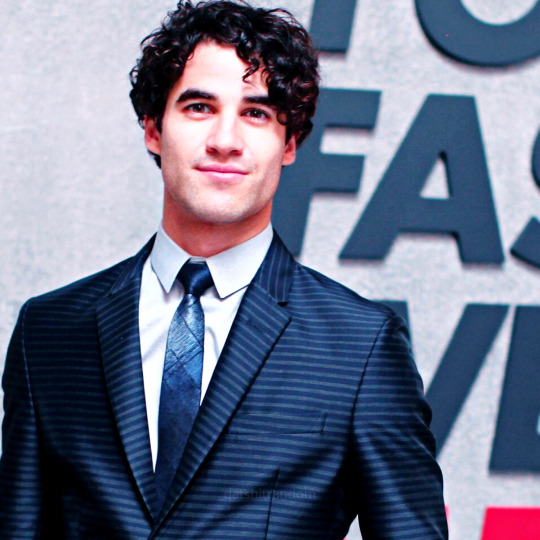

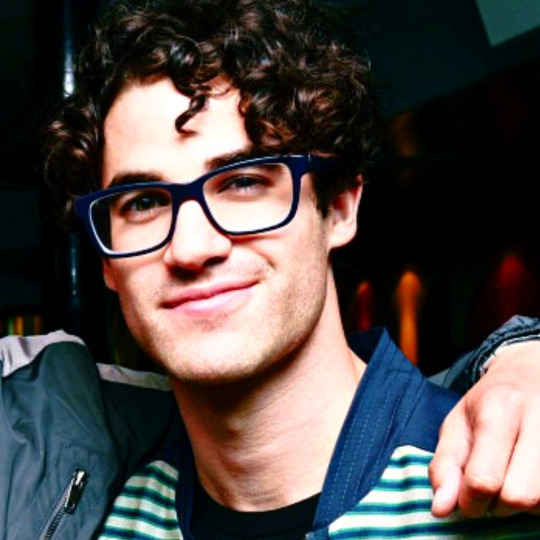


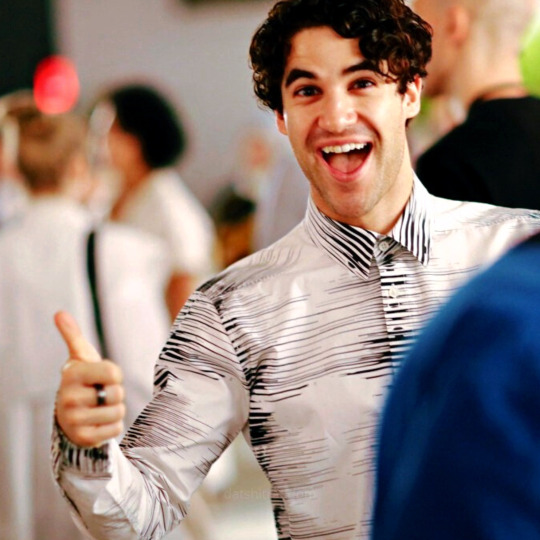



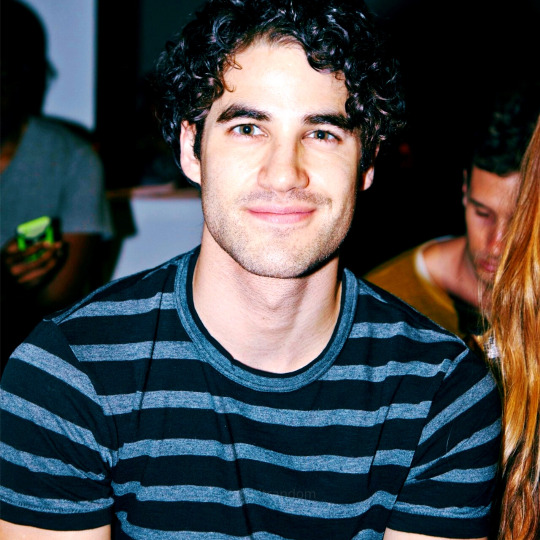

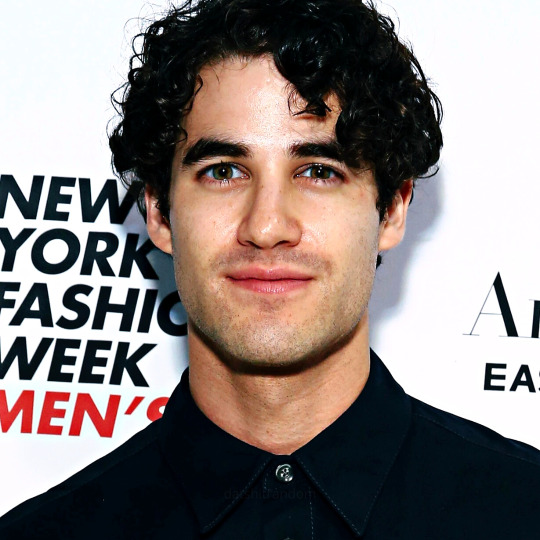
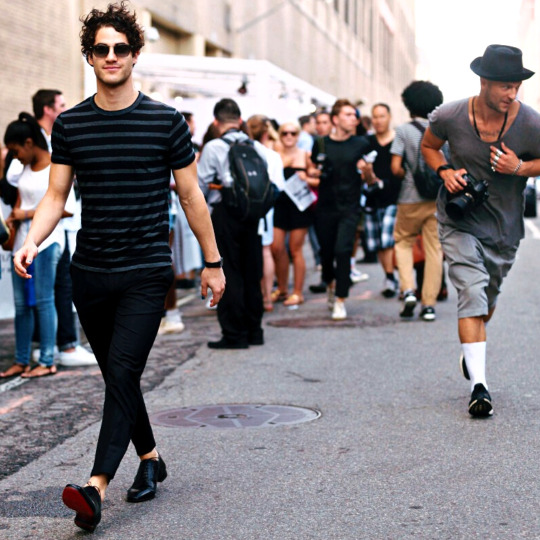



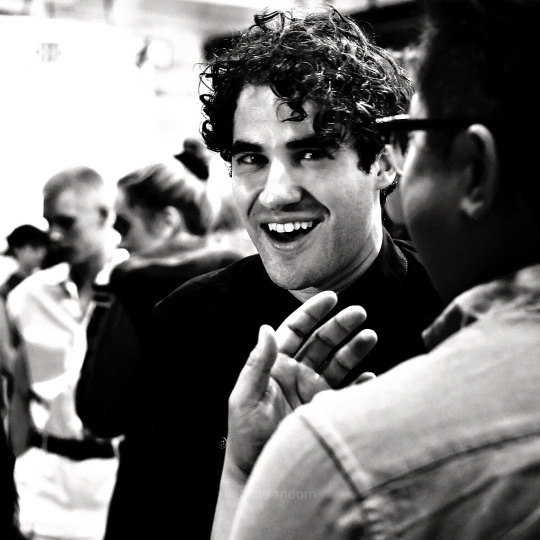

Darren Criss during New York Fashion Week: Men's S/S 2016 | Todd Snyder • Richard Chai • Michael Bastian • Maxwell Osborne & Dao-Yi Chow | July 2015
#Darren Criss#New York Fashion Week 2015#Darren x Todd Snyder#Darren x Richard Chai#July 2015#nails 💅#pretty curls#pretty smile#long post#we need more darren @ fashion shows#love that single curl in his forehead#🫠#please do not repost
41 notes
·
View notes
Text
Richard III and The July Revolution
When I finally saw the Ian McKellan Richard III film I was a bit disappointed, his performance was great and there were interesting ideas to come from the concept of adapting this play to the 1930s. But those ideas weren’t explored fully and the other performances were kinda dull.
But my biggest pet peeve was removing Margaret of Anjou, now her presence in this play is it’s most explicit historical inaccuracy, the historical Margaret was not in England anymore during any of this time period, but an adaptation that removes it from even the pretense of being about actual history doesn’t need to worry about that. As a story, her functioning as a Prophetess of Doom is a lot of why this play works and is why I’m glad the first version of it I ever watched was The Hollow Crown series where she’s played by Sophi Okonedo.
Thinking about the idea of adapting this play to other time periods got me to thinking as a part-time Francophile about the idea of using it as a framing device for a fictionalization of the July Revolution of 1830.
Charles X of France and this popular view of Richard III have in common being the youngest of three brothers who was more of a blatant tyrant then his older brothers and the end of his Dynasty overthrown in a Revolution that could also be viewed as more of a Coup.
Charles was also rumored to have had an extramarital affair with Marie Antionette. Meanwhile he never married a daughter of Marie Antionette but his son did.
Orleans would thus fill the role of Richmond and everyone’s favorite crossover plot-line between the American and French Revolution the Marquis de Lafayette can fill the role of Lord Stanley crowning the new King at the end.
But here’s where specifically my Shadowmen interests come into play. The quasi Prophetess role of Margaret of Anjou can be filled by Josephine Balsamo the Countess of Cagliostro. As a daughter of Josephine she too has a connection to a recently overthrown dynasty.
#Josephine Balsamo#Countess Cagliostro#Margaret of Anjou#Richard III#July Revolution#July Monarchy#Charles X#Francophile#Olreanist#Marie Antionette
3 notes
·
View notes
Text
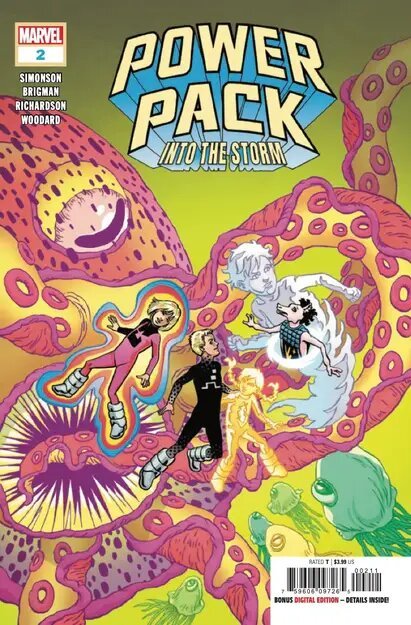


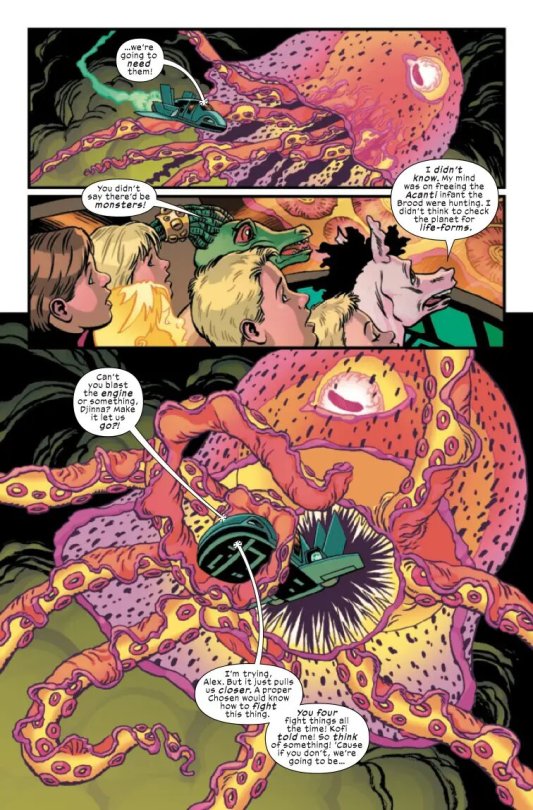
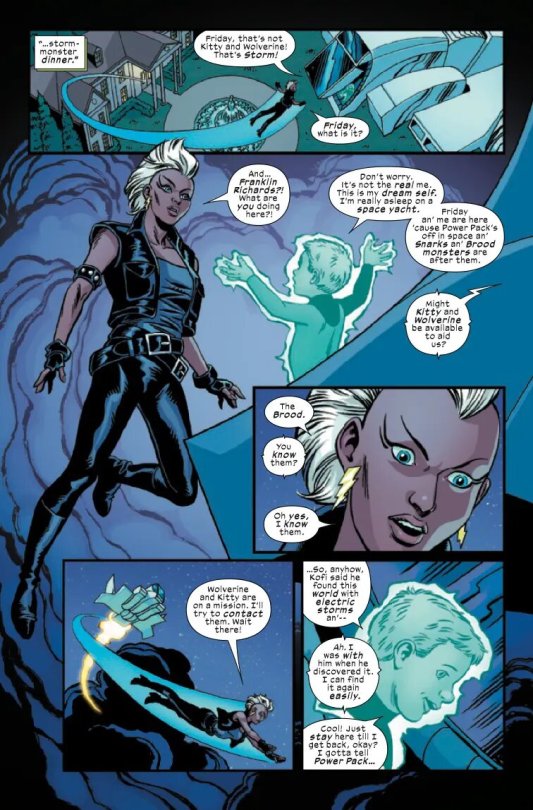
A preview of Power Pack: Into the Storm #2
POWER PACK: INTO THE STORM #2
When agents of both the Snarks and the Brood—old enemies of the Power Pack—attack the Power siblings overnight, it will take the combined might of the siblings and their allies to escape in one piece. But the Powers are not the only prize their enemies seek…
Written by: Louise Jones Simonson
Art by: June Brigman
Cover by: June Brigman
Page Count: 28 Pages
Release Date: February 28, 2024
#Zero G#Alex Power#Lightspeed#Julie Power#Mass Master#Jack Power#Energizer#Katie Power#Tattletale#Franklin Richards#Power Pack#Storm#Ororo Munroe#X Men#XMen#marvel preview#marvel
4 notes
·
View notes
Text
* RICHARD HAAS ( @ycungodshq )
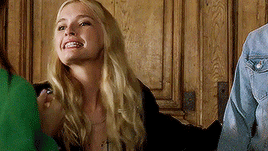
SHE MAKES HER WAY through the hall , stopping to pluck a pair of champagne flutes from a tray when she spots richard talking to another guest — a man she recognises from past events who she knows likes to ramble on and is definitely not as interesting as he thinks he is . and julie is putting that nicely . at least she’s only human so she’s mostly harmless . she makes her way over to him . “ i’m so sorry to interrupt but i really need to talk to our mayor . ” julie wraps an arm through richard’s , pulling him away from the other and leading him towards the buffet . “ you’re welcome . ” she smiles , as if she’d done him such a favour . for all she knows , he was actually interested in whatever the other man had to say .
“ i heard the food is amazing , ” she says , grinning . as if she hadn’t been the one who had been in charge of the catering . so dinner had been catered by one of her favourite restaurants , and she gotten vala to make a cake and other desserts that julie had helped to bring from the peachy dragon , all funded by her family , on top of donations to the organisation involved .
#╰ * JULIETTE : writings . ⧽ under stars bright ready to go .#julie x richard#julie x richard 001#hope this is okay !
3 notes
·
View notes
Text
5 aprile … ricordiamo …
5 aprile … ricordiamo …
#semprevivineiricordi #nomidaricordare #personaggiimportanti #perfettamentechic
2022: Jimmy Wang Yu, Jimmy Wang Zhengquan, meglio conosciuto come Wang Yu, attore, regista e produttore cinematografico cinese naturalizzato taiwanese, talvolta accreditato anche con il nome di Wong Yu-lung. Wang sposò l’attrice Jeanette Lin, dopo una travagliata relazione con la regista Qin Jian, poi si sposò con Wang Kaizhen. (n. 1943)
2022: Nehemiah Persoff, attore e pittore israeliano…
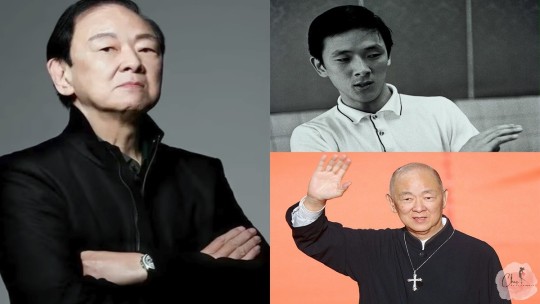
View On WordPress
#5 aprile#Alberto Bonucci#Brian Donlevy#Charlene Holt#Charlton Heston#Dark Man X#DMX#Earl Simmons#Gianni Brezza#Honor Blackman#Howard Hughes#Howard Robard Hughes Jr.#Isabel Jewell#Jimmy Wang Yu#Jimmy Wang Zhengquan#John Charles Carter#Julie Wilson#Lois Andrews#Lorraine Gourley#Nehemiah Persoff#Paul Ritter#Regina Bianchi#Regina D&039;Antigny#Richard Allen Dysart#Richard Dysart#Ricordiamo#The Divine Master of the Unknown#Verna Charlene Stavely#Waldo Brian Donlevy#Wang Yu
0 notes
Text
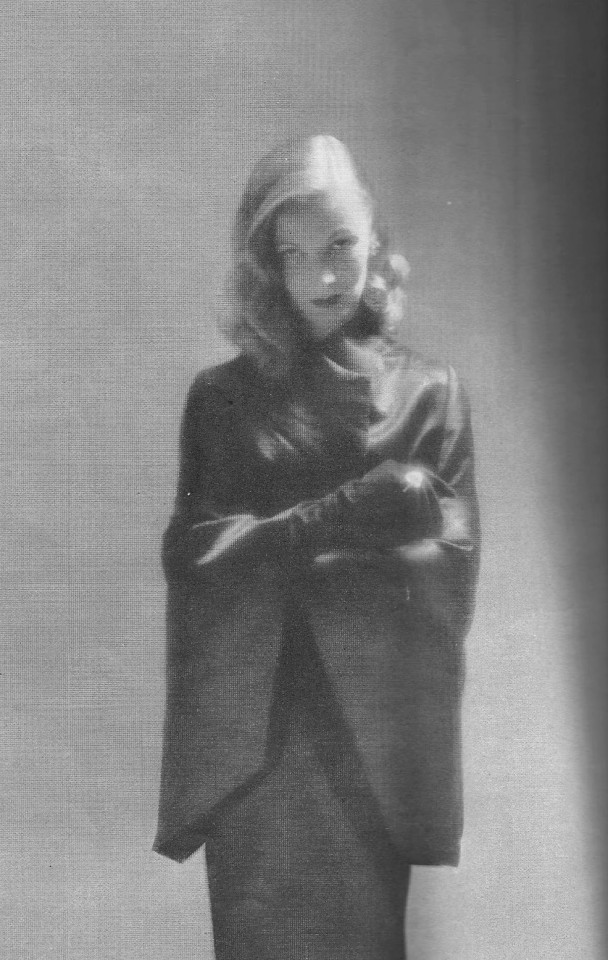
Veronica Lake by Richard Avedon, Harper's Bazaar, July 1947
Oval shoulders, like those of an exquisite ming princess, trace a new line in Castillo's long, close coat of dark satin. It is worn by Veronica Lake, soon to star in Paramount's Saigon. (x)
742 notes
·
View notes
Text
The rapture of BEFORE SUNRISE (1995)

At the last stop of this unplanned, unforeseen project of reviewing backwards each installment of The Before Trilogy, I find myself trying to decide how to better convey the brilliance and conceptual fascination that allowed Before Sunrise to carve a unique space inside my heart in a very similar way to how Time itself – whose entity could be seen as the third protagonist of this movie – carves the crystalized dimension where Jesse and Celine can exist, unbounded to life and unfazed by circumstance, for one night of superhuman transcendence.
I could talk about the individualistic strengths that separate this particular installment from its successors, or likewise the barely noticeable weaknesses that the next two films are able to outgrow, but I sort of already did in my review for Before Sunset. I could extrapolate the foundational points in Jesse and Celine’s characterization that provide the fertile ground the entire trilogy’s power and effectuality rest on, but that’s what my analysis of Before Midnight was also about.
So instead, now I opt to just focus on a specific scene.
WARNING: Spoilers of the trilogy under the cut.
It’s night already, and Jesse and Celine are visiting a Viennese church. Jesse is sitting on a bench, still, seemingly uninterested by the place they are dropping in. His demeanor is that of a courtesy guest who is waiting for their chaperon to say their thanks and goodbyes so that they can move on to better things. His detachment from the church’s symbolic stature and historical value is almost child-like in nature – his attitude sure does resemble that of a young boy, dragged in Sunday’s function by his parents but clearly unbothered by the religious connotations the place is supposed to be filled with. Celine, on the other hand, is walking around with a contemplative gaze that takes in everything that the church has on display. She seems aware of the meaning that the experience is supposed to have, and her wandering eyes are portals of bequeathed truths. When she finally sits down and addresses Jesse, her judgment on the place is respectful to the point of reverence, and her voice is vehicle for a kind of ancient wisdom she has apparently inherited from her Hungarian grandmother.
The camera then proceeds to alternate long, intimate close-ups on the two characters, while Time ultimately strips them of self-constructed projections and leaves them utterly naked in their own radical self-definitions. This is when Celine compares herself to her grandmother and confesses that she has always had “this strange feeling that I’m a very old woman, laying down about to die – that my life is just her memories, or something”. While she admits as much, the viewer can’t help but recollect Celine’s carefully established relationship with death up to this point in the film. Death is always on her mind as a very real and concrete immediate eventuality. In the Cemetery of the Nameless, she disclosed her confidence in being able to not be found by Death as long as she remained in a lost, timeless dimension as the one she and Jesse are currently allowing themselves to temporarily retreat to. On the city tram, she expressed anger at the world’s carelessness towards the deathly impact of military conflicts. On the Eurail train, she manifested her own omnipresent fear towards what now can be understood as a constant feeling of being at Death’s door – “I think I’m afraid of death 24 hours a day”.
In a bewildered expression, Jesse replies to this revelation of hers by bringing up his own self-perception of being a thirteen year old boy who is still waiting to learn what life actually is – who is still trying his very hardest to stay grabbed to the soon-to-be fleeting, remaining shadows of his childhood and avoid experiencing the world with a comparable kind of nihilistic fatalism. And while he admits as much, the viewer can’t help but recollect his own attempt at framing Death as a condition that can be cheated by the imaginative power of the perspective of a child, when he talked about his childhood “magical” experience of seeing his great-grandmother’s ghost on the Eurail train. Coincidentally, this was also the moment where the self-perceived Old Celine, on her imaginary deathbed, burst into an enchanted expression and fell in love with him.
“That’s funny. So, up there in the Ferris Wheel was this very old woman kissing this very young boy” says Celine in one of the most evocative and emblematic lines of the entire film. Jesse lovingly strokes her hair while she recollects how Time itself – or, how Midnight’s Jesse would correct me, Perception – allowed them to ultimately fuse Young and Old, Life and Death in a single kiss (a kiss that takes place during Sunset, of all moments). This is the median point in the movie, where the characters come together in a single entity and exchange their perspectives through that symbiotic, conjoining act. By falling for Jesse while he was refuting her realistic stance towards Death through a dream-like memory, Old Celine falls in love with life again. By falling for Celine while she was manifesting her grounded perspective on Death through a realistically assessed fear, Thirteen Year Old Jesse finally learns what life is and falls for it.
Suddenly overtaken by this realization, Jesse seizes the perfect instant they are sharing and tries to marry Celine Quaker-style. Retroactively, this strikes as a particularly important moment not only for the movie, but for the entire trilogy as well. Because this is the moment that marks the beginning of the Fall. Jesse indirectly proposes by staring at her, and Celine seems to be grasping this, holding her eyes locked into his for a couple of seconds.
But then, she hesitates and looks down.
By turning her eyes away, she ultimately decides to maintain her familial closeness with her grandmother – that is, to remain laying down in the deathbed, and reject Jesse’s youthful proposal to escape their own self-perception together. This moment foreshadows Celine’s own decision to miss the planned re-encounter with Jesse in favor of attending to her grandmother’s funeral, six months after this night. That decision is what causes Jesse to fall into existential depression and leads him to write a book about the one experience in his life when “he felt like he was somebody else”. Jesse’s decision to publish that book in order to find Celine and ask her justification for missing their second encounter is, on the other hand, what causes Celine to fall into existential anger as a consequence of his disrespect towards her wish to not become a “great story” or a male fantasy. The seed that prompts the cascading effect at the core of everything that happens in the next two installments of the trilogy is planted here, when Celine averts her eyes from Jesse’s a moment too soon, and he is left staring at her with this indescribable look on his face that tells the viewer that he’s suddenly aware of all of this. Like a window on her soul, Ethan Hawke manages to create a look that is both nostalgic and defeated – as if Jesse had actually been travelling back and forth through time in that couple of seconds and had seen how their lives after that night would turn out. There’s a morbid awareness in that look, and uncomfortable melancholy all at once. There’s an entire life of vitality and the nothingness that remains after it at the same time.
This isn’t the only moment where the couple’s fate is hinted at either. After their goodbyes, when the film recaps the various locations the couple has visited during their brief time together, an old, limping woman is seen ominously walking through the same spot, in the park, where Jesse and Celine previously consummated their connection. It’s really hard not to see the shadow of Celine’s grandmother in that woman, taking her last walk through life by stepping on her granddaughter’s love nest and sentencing the young lovers to the complicated future we know they will have. She walks slowly past the two empty glasses of wine that Jesse and Celine left behind, mirroring the two full but undrinked ones they will again leave behind eighteen years later in a Greek hotel room, after a brutal confrontation that leaves the state of their relationship permanently uncertain.
Overall, a whole lot else could be said about the magnificence of Before Sunrise, but I think that brief scene alone in the church is enough by itself to showcase it. This is, simply put, an incredible film that teaches you how to suspend time, and how to challenge and subvert art’s forms of limitation – a film whose heaviness and symbolic power actually increases, not diminishes, thanks to the two installments that come after it.
A spectacular first entry in a likewise spectacular trilogy that everyone should absolutely watch at least once in their lifetime.
#richard linklater#ethan hawke#julie delpy#before trilogy#before sunrise#before sunset#before midnight#jesse wallace#celine#jesse x celine
21 notes
·
View notes
Text




before sunrise (1995)
#before sunrise#before sunset#before midnight#before trilogy#richard linklater#jesse x céline#ethan hawke#julie delpy#cinematography#vienna#cinephile#aesthetic#movie quotes#cinema#letterboxd#movies#film#gainpost#shitpost#movie review#movie stills#film quotes#film stills#romance#romance movies
6 notes
·
View notes
Text
After Hours
Spencer Reid x Reader
18+🔥
Spencer Reid Smut ‼️ Friends to lovers
You sneak Spence into a public library after hours🫢
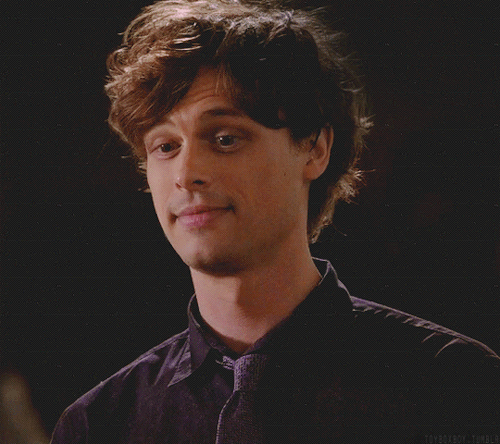
“We can’t be here right now,” Spence whispers as he glances around the dimly lit street.
“Shh,” you shush him.
You grab his forearm and urge him to follow you to a small door at the back of the brick building. You furnish a single key and quietly unlock it.
“Where did you get that?” His pushes.
“I know a guy who knew I guy that worked her,” you grin mischievously. “Come on, you know you want to,” you elbow him and push the door open.
The library has been closed for hours and you’re enjoying making Spencer squirm as he wars with the thrill of getting into a library that’s closed and the moral dilemma of trespassing.
“I am only agreeing to this to see those books they keep in the temperature controlled cases,” he sighs and slinks into the small room behind you.
You and Spencer have been friends for a few years, working closely in the BAU, and bonding over your own interest in law and his knowledge in well… everything.
He pushes some strands of hair from his forehead with long delicate fingers and adjusts his shoulder bag. His hair is shorter than usually but it suits him.
“You do know the penalty for trespassing in Washington, DC is a fine and up to 6 months in jail,” he turns to you.
“I think we’ll be alright,” you grin and tap your badge.
After about an hour of roaming the shelves, he finally becomes more relaxed. He’s crouch on the floor, examining a stack of old documents from a filing cabinet. Books are scattered around him chaotically.
You watch for a moment as his fingers work to trace over the text, his brain working exceptionally quick to intake the information instantaneously. You always find yourself amazed at the way his brain works.

The small crush you’ve harbored for him has been tucked tightly away. Keeping things professional is essential in the line of work the two of you share and you won’t jeopardize the friendship. Still, you allow yourself moments to admire him in all of his beauty.
His tongue darts out and swipes his bottom lip like it always does when he’s focused, his brow furrows slightly as he reads, and he mouths words here and there. He rocks back on his heels and sits on the carpet next to a bookshelf.
“Okay brainiac, I have a game,” you bounce into the room hold the stack of books. He looks up at you curiously, his brown eyes like honey in the dim light. You swallow.
“A game?” He asks.
“I found the most random and niche books I could, I’m gonna hold them up and you’re going to give me a synopsis. I’m positive I’ve found one that will stump you,” you smile and sit with your criss crossed in front of him.
“I haven’t read every book,” he starts. You raise your eyebrows at him. “Just most of them,” he shrugs.
You hold up a book about gardening and he gives you a run down of it.
“Why did you read this?” You ask.
“I skimmed it in high school,” he appears please with himself. You hold up another;
“Let me save you some time,” he grabs the other six books. “Lovers during World War Two, the rise of buddhism in western culture, lame romance about a cowboy… who dies at the end…” you snatch the book from his hand.
“You are insane!” You laugh. He smiles and holds up another.
“Julie is married to a man but is in love with his brother and noone has a happy ending,” he gives you a cocky grin but continues. “Inside Richard Ramirez’s life and…” he flips the last book over. “Oh, sci-fi about a journey to the Cigar galaxy,” he finishes.
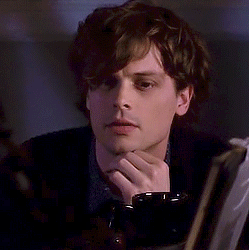
You snatch it, examine it, and then throw it at his chest.
“What was that for?” He laughs and rubs his hand over the spot you hit.
“You’re too smart for your own good,” you sigh in defeat. He collects the books from around you, his knees knocking into yours.
A spark of heat seems to be exchanged from the touch, his breathing hitching so low that you almost miss it.
He glances up at you for a moment, searching your eyes as a strand of hair falls over his own. You reach out instinctively and push it back.
Your hand lingers in his hair for a moment, your fingertips grazing his scalp. He sucks air between his teeth as though the sensation is shocking to him. You lean forward and push your hand further into his hair, you don’t know why but you feel the need to touch him. He doesn’t protest, he’s staring at your lips.
The two of you gravitate closer, your heart pounding when his hand runs up your arm and entangles your hand further into his hair. He’s urging you to tug, to massage, it feels too good. His hand on yours, laced with your fingers, you oblige and take the control, you push his head closer to yours, overwhelmed by the small noises he’s making in the base of his throat.
His jaw tenses and he’s done with restraint. He drops the books and closes the rest of the space between you, leaning up on his knees to kiss you. You drop your hand from his hair and meet him there, winding your hands into his dark button down shirt, tugging on his loosened tie.
He tastes like mint, like heaven and earth collided, his lips soft and warm. A moan escapes your lips when his hand grips your hip, the other winding into your hair. You can’t believe what’s happening. You don’t want it to stop.

“Spence,” you whimper and pull away to look into his eyes pleadingly. Your grip still from on his tie. He nodded, understanding what you’re asking.
You push him backward, forcing him down onto the floor, a small laugh escaping him. His eyes are wild, his hair tousled, his lips reddened from the kiss, and he’s lying below you allowing you to take control.
Fuck.
You straddle his hips, papers and books being kicked around beneath you. Both of you are panting with need when you kiss him again.
“You’re so beautiful,” he breathes. You pull his shirt open while his hands caress your body, long fingers trailing up and down your spine and hips. It drives you wild, sending heat gathering between your thighs.
That heat builds up so quickly when you begin to kiss his bare chest that you have to grind down onto his growing erection to appease the need.
He tilts his head back, reveling in the feeling of the friction.
“So…” he swallows when you rock your hips again. “So good.”
He pulls your tight sweater up over your head, greedily taking in the view of your breasts in the lace bra. His face is red, he’s burning with need too.
You fumble with his belt and finally pull his cock free, the sight and size mouth watering. You push away the thoughts of Hotch reprimanding the two of you for what you’re about to do. Yet the thought of sinking down onto him is too overwhelming. You don’t care about anything in that moment, but getting him inside of you.
“We’re going to be in so much trouble if someone finds out,” you muse as you tear yourself free of your own pants. He leans up on his elbow and tilts his head as though he hadn’t thought of that yet.
“So no one finds out,” he demands. It takes you off guard when he pushes himself up and takes you to the floor, pinning you beneath him. His eyes darken, his gaze more primal when he leans down to kiss your neck.
His hard cock prods at the entrance of your vagina, your wetness soaking the tip. He slides his cock upward, between the lips teasingly, coating himself in your arousal. Your lips meet and your tongues fight for dominance as he groans. You reach down and grab his cock, stroking it in warning.
“Give it to me Reid,” you bite out.
He smiles but obliges. He pushes himself into you, slowly so that you can stretch around him. You buck your hips up, taking him off guard. He slams his other hand onto the floor to steady himself, the raw pleasure of being seated completely inside of you stealing his breath.
He throws his head back and works himself out slightly before pushing back in.
“Fuck, Spence,” you moan. His shirt is hanging open but you kiss and suck at his chest while he finds his sweet sinful rhythm.
He pushes your legs up and open wider, slamming deeper into you until you’re crying out into the empty library.
“Shhh baby, you’re taking it so good,” he whispers. He doesn’t stop his hard pounding into you, drawing you closer and closer to the edge.
You tighten around him, a warning of your impending orgasm. He smiles knowingly and gives you long slow strokes to ride it out to. Your nails dig into his back as your legs wrap around his hips, greedily taking all of him while you explode around his cock. You pulse around him, squeezing, and practically begging him to cum too.
“Ah-“ he shutters and slows his pace. He doesn’t want to cum yet. He grunts and grabs a fistful of your hair before pushing himself back into you.
He buries his face in your breasts, abruptly biting hard as his hips wind and work his cock in and out of you. He nips at your nipple, causing you to tighten around him. He grins into the soft skin, breathing hard against you. Your hands are in his hair again, holding on as another organs builds within you.
“Reid…” you moan. But he bites you again, thrusting hard as though he needs it more than life, more than oxygen. “Spencer I’m going to cu-“ you don’t get to finish the words.
His hands wind into your hair, yanking your head upward and back and he drives into you with unrelenting speed.
“Fuck,” you swear he groans under his breath.
Your orgasm comes over you without mercy, ravaging your core, blinding you with pleasure, and causing your legs to shake violently around him. He whimpers as you tighten impossibly tight around him and it consumes him.
His hips sputter as he erupts inside of you, pumping you full of him. He slides in and out of you, rolling his hips a few more sinful times as though to enjoy the sensation. As though to solidify the memory of how it feels to be inside of you.
His kisses you deeply and buries his face in the crook of your neck as you hold each other.
Neither of you want to be pulled from the moment, so you lavish in the afterglow in each other’s arms.
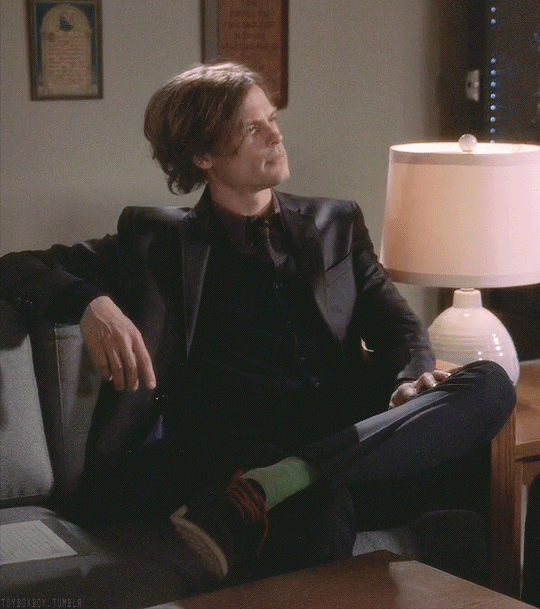
132 notes
·
View notes
Text
favourite poems of october
alfred starr a dark dreambox of another kind: the poems of alfred starr: "didn't you ever search for another star?
stephen spender new collected poems: "auden's funeral"
marianne boruch keats is coughing
noa micaela fields zoeglossia: poem of the week, may 17, 2021: "echolalia"
kevin young diptych
richard siken real estate
crisosto apache kúghą/home
mikko harvey for m
nathan hoks nests in air: "the barbed wire nest"
john a. holmes noon waking
crisosto apache 37 common characterisi(x)s of a displaced indian with a learning disability
oliver de la paz requiem for the orchard: "at the time of my birth"
zhang xun jiangnan song (tr. bijaan noormohamed)
paul violi fracas: "extenuating circumstances"
tianru wang after "yellow crane tower"
lloyd schwartz cairo traffic: "nostalgia (the lake at night)"
kamiko han the narrow road to the interior: "the orient"
rigoberto gonzalez unpeopled eden: "unpeopled eden"
adelaide crapsey verse: "to the dead in the graveyard underneath my window"
chester kallman night music
alan shapiro covenant: "covenant"
tom clark light and shade: new and selected poems: "radio"
tc tolbert my melissa,
charlie smith in praise of regret
carolyn kizer cool, calm, and collected: poems 1960-2000: "fanny"
julie sheehan orient point: "hate poem"
arthur sze the redshifting web: poems 1970-1998: "streamers"
joumana altallal everything here...in the voice of tara fares
abid b al-abras last simile
w.s. merwin to lingering regrets
george scarbrough music
shout me a coffee
#tbr list#poems#poetry#poetry list#poem list#poet#poets#alfred starr#a dark dreambox of another kind#didn't you ever search for another star?#stephen spender#new collected poems#auden's funeral#marianne boruch#keats is coughing#noa micaela fields#echolalia#zoeglossia#oliver de la paz#requiem for the orchard#at the time of my birth#paul violi#fracas#extenuating circumstances#lloyd schwartz#cairo traffic#nostalgia (the lake at night)#rigoberto gonzalez#unpeopled eden#tom clark
215 notes
·
View notes
Text

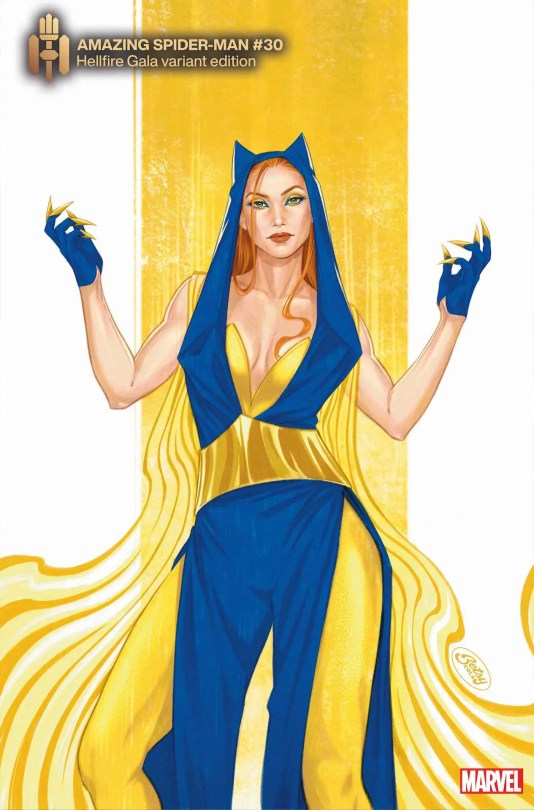


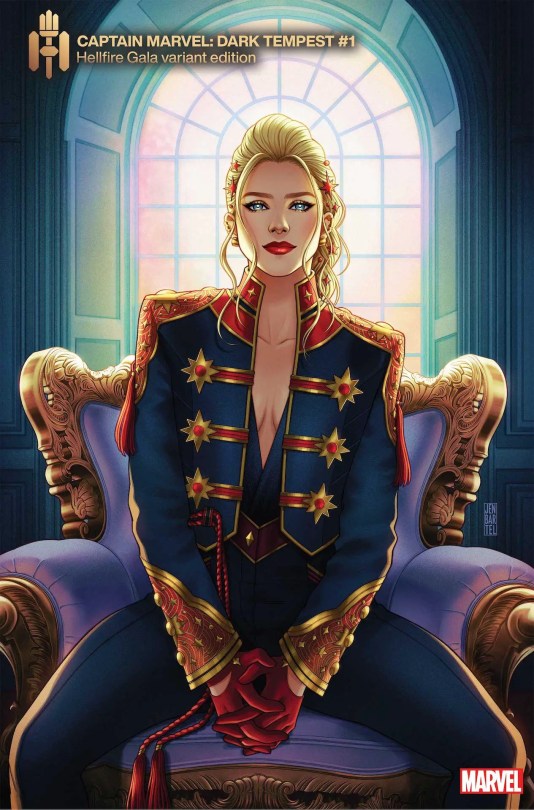
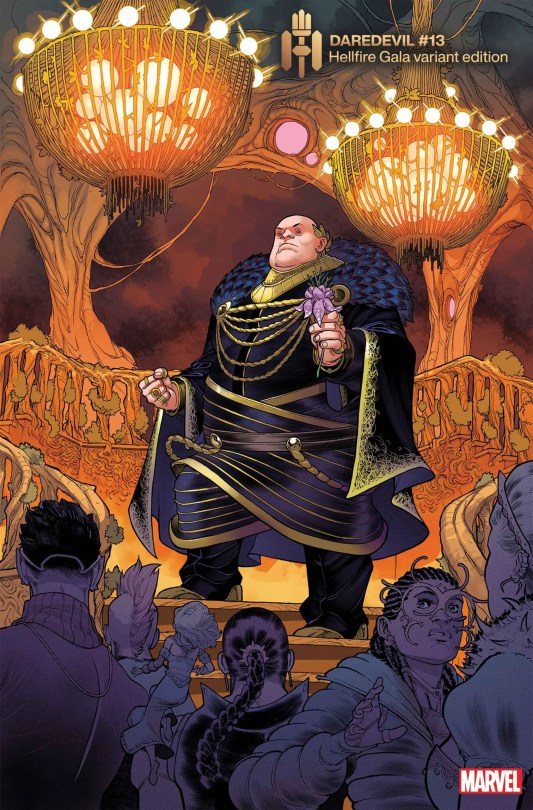

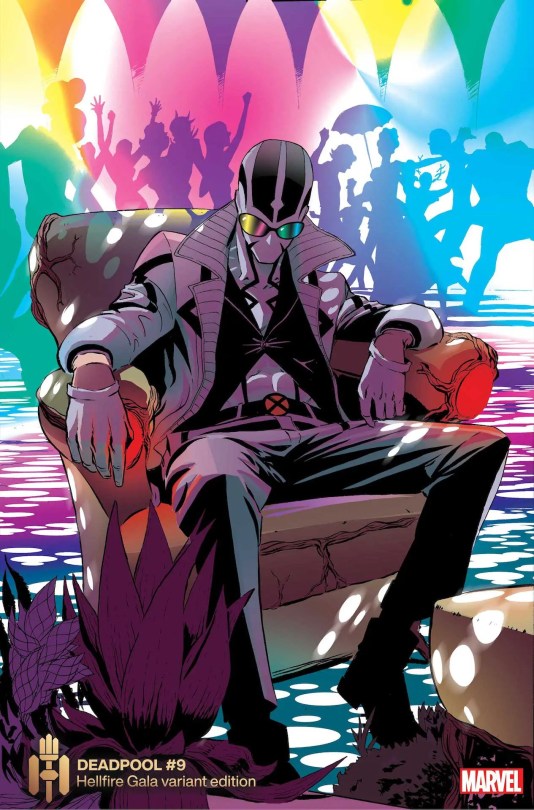
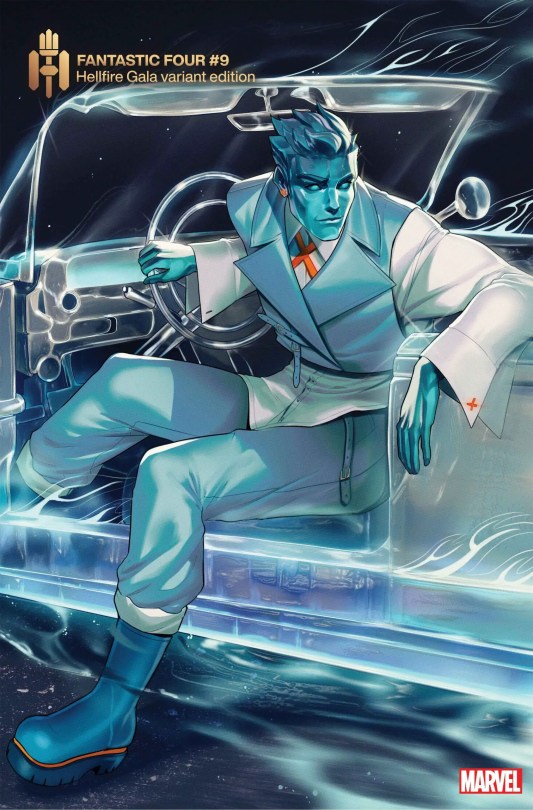
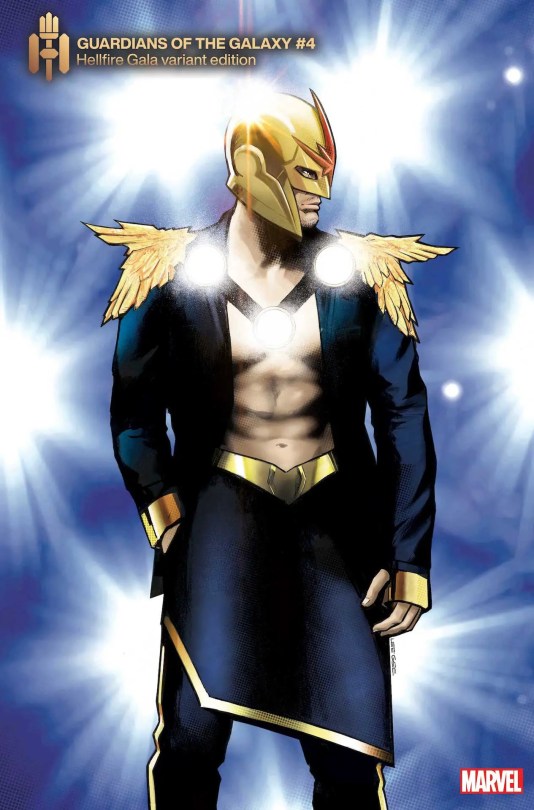





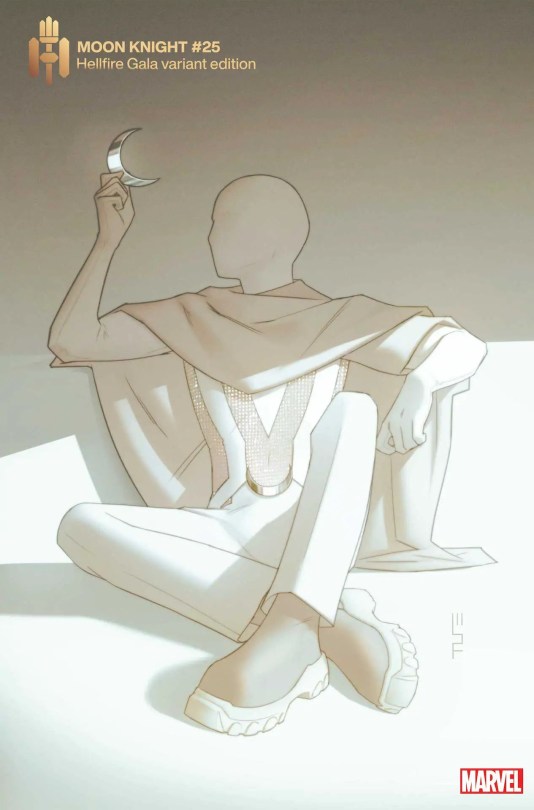
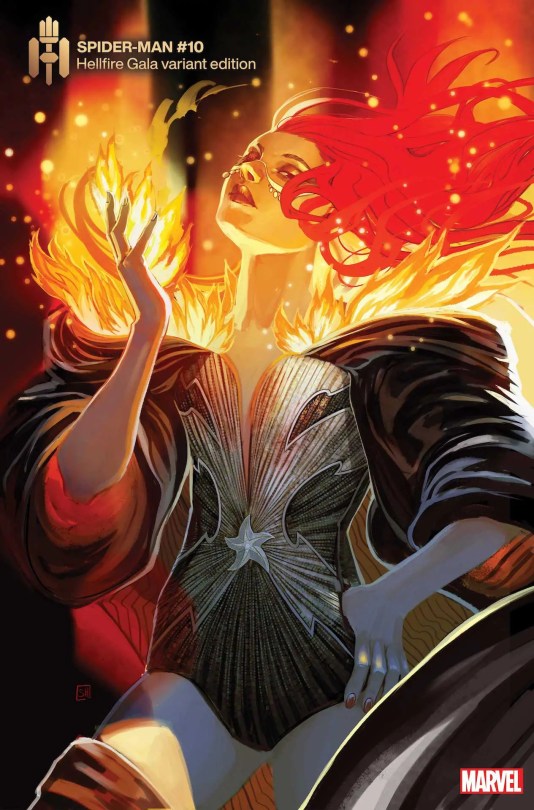
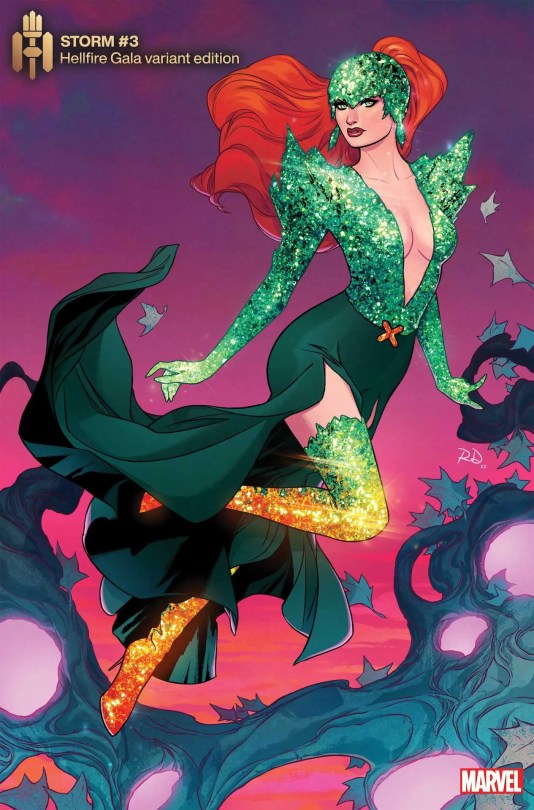

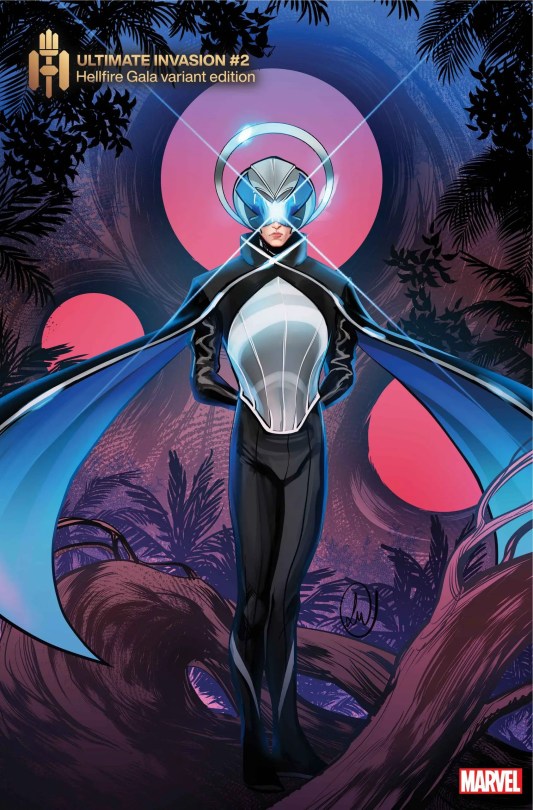
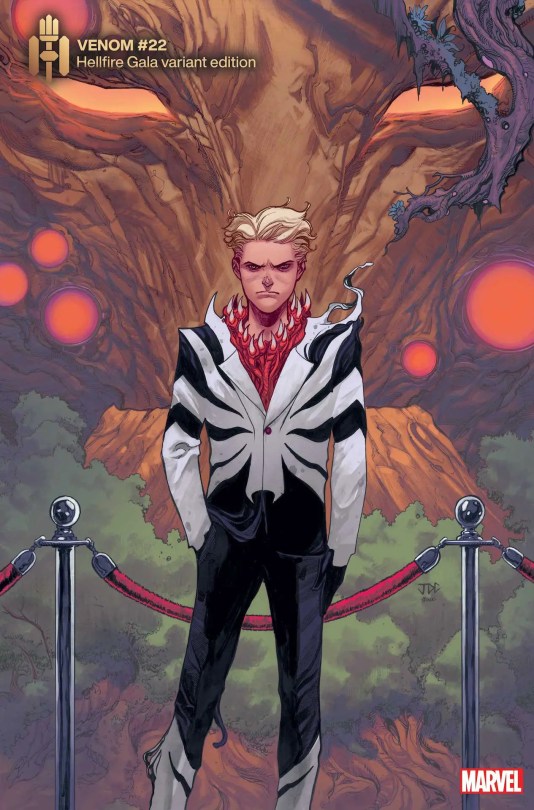


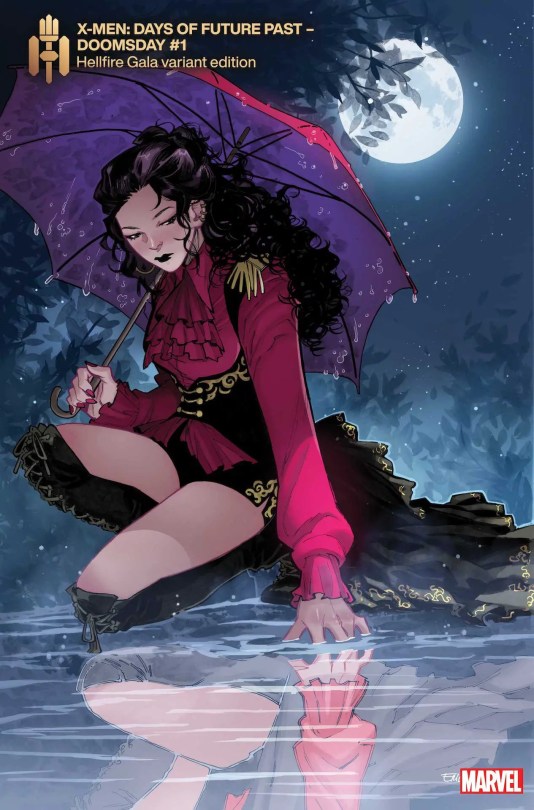


The Hellfire Gala variant covers for July 2023 Marvel solicits
Black Cat (Felicia Hardy) and Mary Jane on Amazing Spider-Man #29 variant cover
Hellcat (Patsy Walker) on Amazing Spider-Man #30
Vision on Avengers #3
Black Panther (T'Challa) on Black Panther #2
Carol Danvers on Captain Marvel: Dark Tempest #1
Kingpin (Wilson Fisk) on Daredevil #13
Scarlet Witch (Wanda Maximoff) on Doctor Strange #5
Deadpool (Wade Wilson) is oddly dressed as Fantomex on the variant cover of Deadpool #9
Iceman (Bobby Drake) on Fantastic Four #9
Nova (Richard Rider) on Guardians of the Galaxy #4
Ghost Rider (Johnny Blaze) on Ghost Rider #16
Hallow's Eve (Janine Godbe) on Hallow's Eve #5
The Five - Proteus (Kevin MacTaggert), Goldballs/Egg (Fabio Medina), Hope Summers, Tempus (Eva Bell) and Elixir (Josh Foley) on Immortal X-Men #13
Emma Frost on Invincible Iron Man #8
Miles Morales on Miles Morales: Spider-Man #8
Moon Knight (Marc Spector) on Moon Knight #25
Firestar (Angelica Jones) on Spider-Man 10
Jean Grey on Storm #3
Thor (Thor Odinson) on Thor Annual #1
Professor X (Charles Xavier) on Ultimate Invasion #2
Dylan Brock on Venom #22
Talon (the older Laura Kinney) on Wolverine 35
Bishop (Lucas Bishop) on X-Force #42
Psylocke (Kwannon) on X-Men: Days of Future Past: Doomsday #1
Exodus (Bennet Du Paris) on X-Men: Before the Fall - Sinister Four #1
Synch (Everett Thomas) on X-Men #24
#Hellfire Gala#Black Cat#Felicia Hardy#Mary Jane Watson#Hellcat#Patsy Walker#Black Panther#T'Challa#Captain Marvel#Carol Danvers#Kingpin#Wilson Fisk#Scarlet Witch#Wanda Maximoff#Iceman#Bobby Drake#Nova#Richard Rider#too many to tag#variant covers#marvel
424 notes
·
View notes